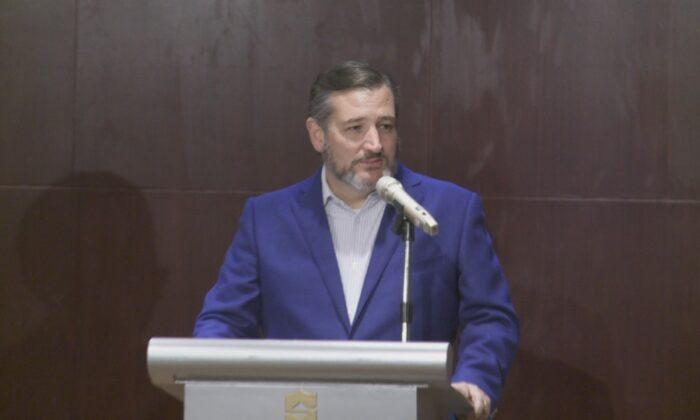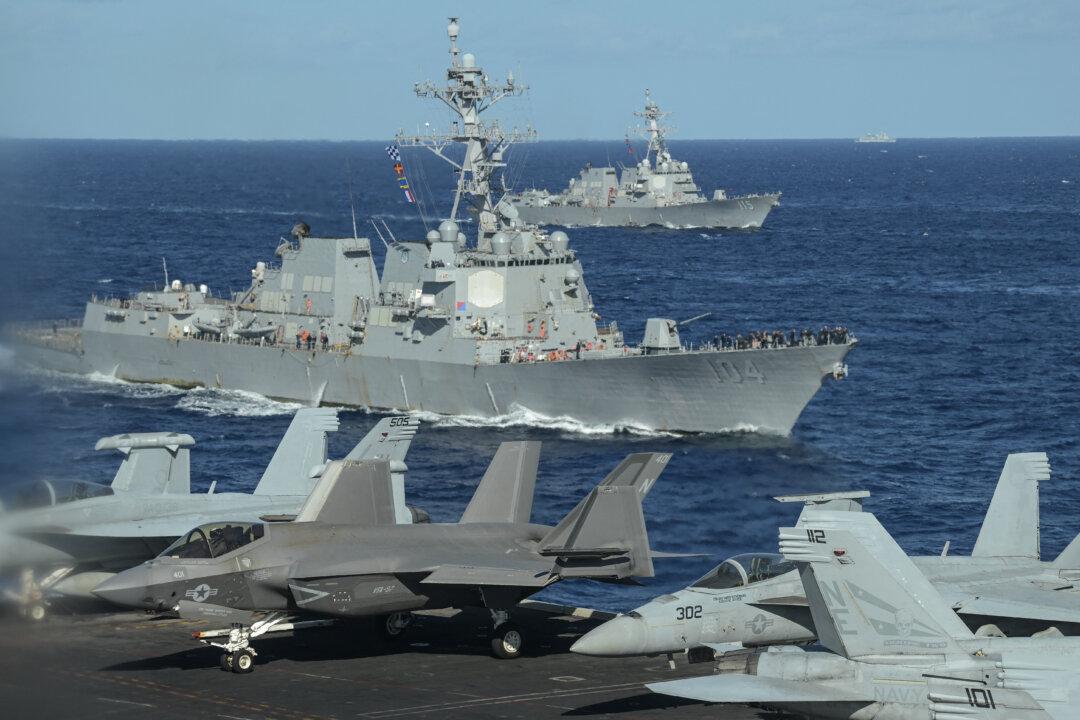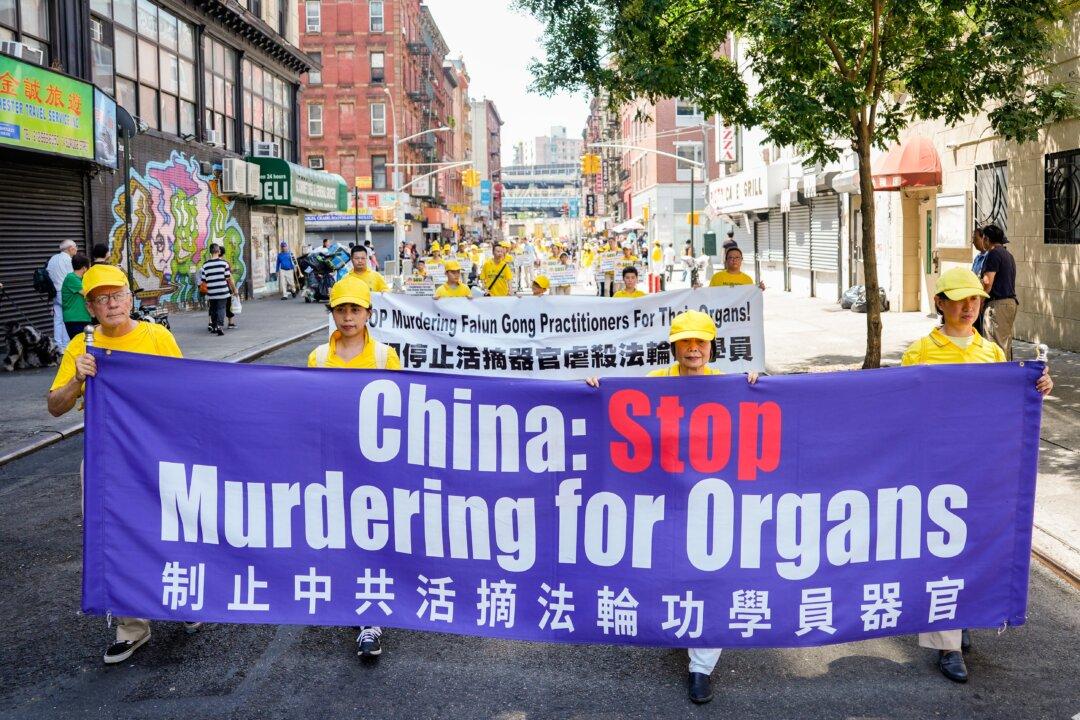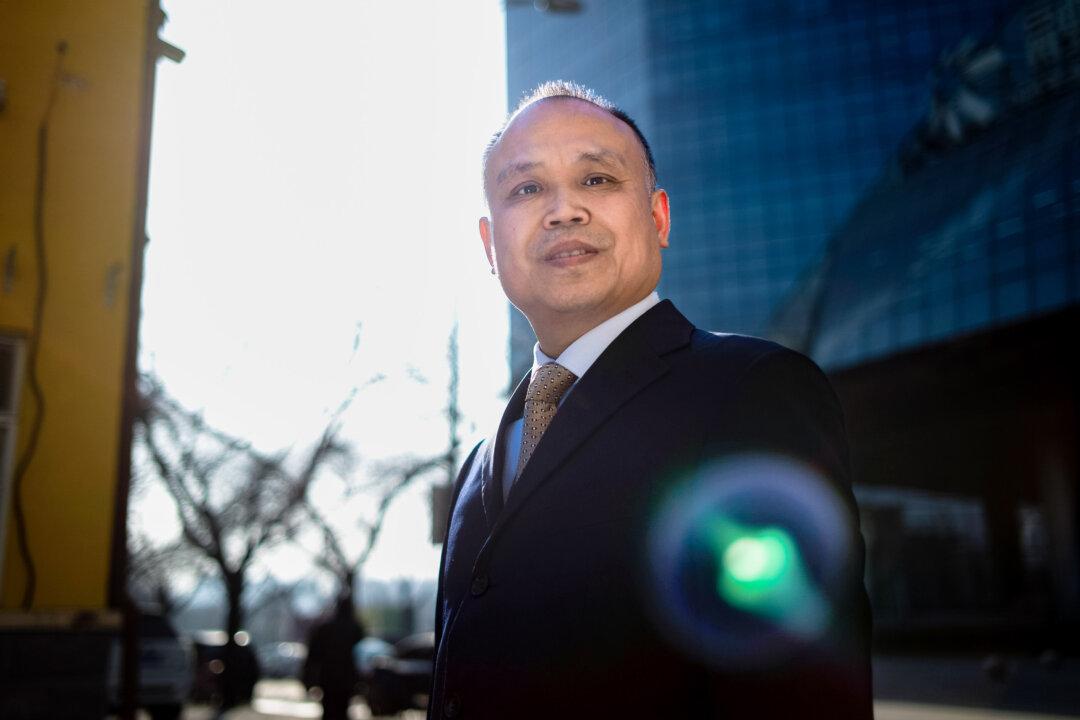TAIPEI—Taiwan celebrated its National Day on Oct. 10 and among the dignitaries and guests who came to the island for the festivities was U.S. Senator Ted Cruz (R-Texas), who reaffirmed the strong relationship between the island and the United States.
Cruz’s participation in the National Day celebration marked the first time that a U.S. senator visited the island on this occasion in 35 years. Before taking part in the celebration, Cruz met with the local press and spoke of the friendship between the United States and Taiwan on Oct. 9.
“This is a friendship that is incredibly important. This is a military relationship that is incredibly important. This is an economic relationship that is incredibly important,” Cruz said.
The United States currently has no formal diplomatic ties with Taiwan, since Washington changed its diplomatic recognition in favor of Beijing in January 1979. But the United States has maintained a non-diplomatic relationship with Taipei based on the Taiwan Relations Act (TRA), under which the United States supplies Taiwan with arms for its self-defense.
Cruz explained that his visit to Taiwan was part of his Indo-Pacific tour, which took him to Hawaii and Japan before his arrival in Taipei. In Hawaii, Cruz said he was briefed by the U.S. Indo-Pacific Command about military threats in the region, particularly about China’s military build-up. In Japan, he met with Japanese Prime Minister Shinzo Abe.
He said during the tour, he discussed with officials how to deal with “a more assertive, more aggressive communist China.”
After Taiwan, he will next travel to India and Hong Kong.
Cruz added that Taiwan is important not only in the Asia-Pacific region but to the world because “Taiwan’s very existence, the creation of Taiwan, is standing up to [Chinese] communist oppression, is standing in opposition to a tyrannical communist government.”
Beijing has repeatedly adopted war-mongering tactics to intimidate Taiwan, which it considers part of its territory despite the self-ruled island having its own democratically-elected government, military, and currency. Aside from regularly flying fighter jets and holding military exercises near the island, the Chinese regime also wants to win public opinion in Taiwan to favor unification with the mainland.
The senator criticized Beijing’s efforts to undermine Taiwan, including luring away the island’s diplomatic allies, by engaging in tactics such as economic cohesion and blackmail.
Taiwan currently has 15 allies remaining.
“The Chinese communist government is terrified that the Chinese people will see, how come the people of Taiwan enjoy freedom, enjoy democracy, and we don’t … why can’t we have that same freedom?” Cruz added.
Under the Act, the U.S. government would be required to engage with countries around the world to support Taiwan’s diplomatic recognition and strengthen unofficial ties with the island.
It will also allow the U.S. Secretary of State to modify the United States’ diplomatic relations with, and foreign assistance to, countries that alter or downgrade official or unofficial ties with Taiwan.
Cruz said that the U.S. government could do more. First, Cruz said he wants to see a free-trade agreement between the United States and Taiwan.
He explained that Taiwan was the United States’ 11th largest trading partner in 2018, and the two sides traded over $94 billion in goods and services. He said he hopes to see more bilateral investments.






Friends Read Free